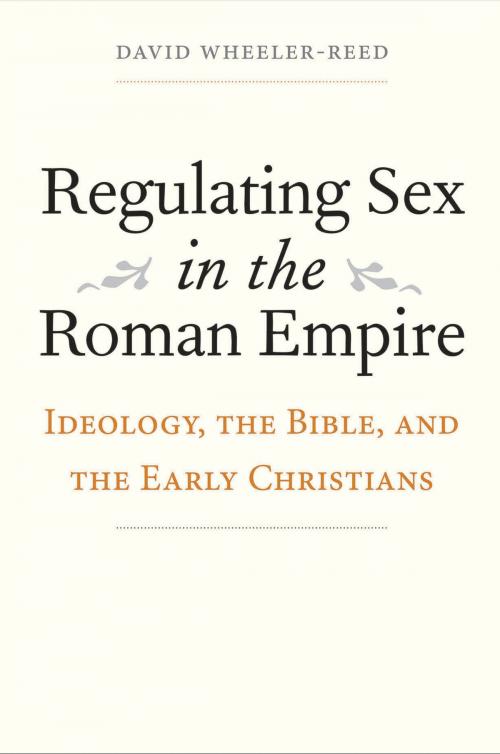Regulating Sex in the Roman Empire
Ideology, the Bible, and the Early Christians
Nonfiction, Religion & Spirituality, Theology, Social & Cultural Studies, Social Science, Gender Studies, Christianity| Author: | David Wheeler-Reed | ISBN: | 9780300231311 |
| Publisher: | Yale University Press | Publication: | November 28, 2017 |
| Imprint: | Yale University Press | Language: | English |
| Author: | David Wheeler-Reed |
| ISBN: | 9780300231311 |
| Publisher: | Yale University Press |
| Publication: | November 28, 2017 |
| Imprint: | Yale University Press |
| Language: | English |
A New Testament scholar challenges the belief that American family values are based on “Judeo-Christian” norms by drawing unexpected comparisons between ancient Christian theories and modern discourses
Challenging the long-held assumption that American values—be they Christian or secular—are based on “Judeo-Christian” norms, this provocative study compares ancient Christian discourses on marriage and sexuality with contemporary ones, maintaining that modern family values owe more to Roman Imperial beliefs than to the bible.
Engaging with Foucault’s ideas, Wheeler-Reed examines how conservative organizations and the Supreme Court have misunderstood Christian beliefs on marriage and the family. Taking on modern cultural debates on marriage and sexuality, with implications for historians, political thinkers, and jurists, this book undermines the conservative ideology of the family, starting from the position that early Christianity, in its emphasis on celibacy and denunciation of marriage, was in opposition to procreation, the ideological norm in the Greco-Roman world.
A New Testament scholar challenges the belief that American family values are based on “Judeo-Christian” norms by drawing unexpected comparisons between ancient Christian theories and modern discourses
Challenging the long-held assumption that American values—be they Christian or secular—are based on “Judeo-Christian” norms, this provocative study compares ancient Christian discourses on marriage and sexuality with contemporary ones, maintaining that modern family values owe more to Roman Imperial beliefs than to the bible.
Engaging with Foucault’s ideas, Wheeler-Reed examines how conservative organizations and the Supreme Court have misunderstood Christian beliefs on marriage and the family. Taking on modern cultural debates on marriage and sexuality, with implications for historians, political thinkers, and jurists, this book undermines the conservative ideology of the family, starting from the position that early Christianity, in its emphasis on celibacy and denunciation of marriage, was in opposition to procreation, the ideological norm in the Greco-Roman world.















